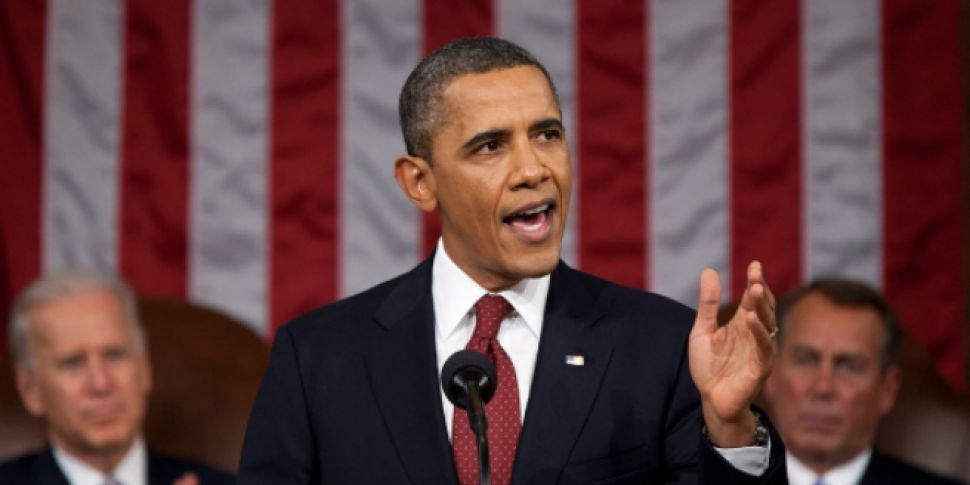Tensions have escalated to new heights on the Korean peninsula.
It follows reports that North Korea has moved a missile launcher into the firing position.
US Secretary of State, John Kerry, has arrived in the region for a 3-day visit. He'll hold talks with North Korea's neighbours, as the US signals its intention to take a more active role in de-escalating the crisis.
But US President Barack Obama issued this warning from Washington last night:
new jPlayerPlaylist({ jPlayer: '#0', cssSelectorAncestor: '#jp_container_0' }, [ { title:'Barack Obama', mp3:'http://www.radiocms.net/content/hose/media/000201/238713_0524125.mp3'
} ], { swfPath: '/assets/includes/js/jPlayer', supplied: 'mp3', wmode: 'window' });
Foreign Ministers from the G8 group failed to come up with a solid plan on the situation during a meeting in London yesterday.
Nuclear threat
A US intelligence report suggests North Korea could arm a ballistic missile with a nuclear warhead.
The claims have since been watered down by the Pentagon, and South Korea says it 'doubts' its neighbour would be able to launch any such weapon.
But North Korea is still threatening strikes and has moved two missiles to its east coast.
The focus in the North Korean capital has been on a weekend of celebrations to mark a year in office for Kim Jong Un, which fell yesterday, and the anniversary of Mr Kim’s grandfather, Kim Il Song, the founder of the nation.
Over several weeks, the regime has declared itself to be in a "state of war" with the South, announced that a mothballed nuclear site is to be reopened and threatened to carry out nuclear attacks against the US.
Diplomatic efforts
The crisis on the Korean peninsula is bound to dominate talks between US Secretary of State, John Kerry, and his South Korean counterpart, Foreign Minister Yun Byung-se. Kerry is on a 3-day visit to the region.
"On the agenda for their talks would be the topics related to the security situation on the Korean Peninsula, how to cope with North Korea's threats and how to deter the North's provocations," foreign ministry spokesman Cho Tai-young said.
US Intelligence
The broad consensus is that while Kim Jong Un does posses nuclear devices and has crossed the "nuclear threshold", he does not have the capability to launch a nuclear missile.
However, at a congressional hearing in the US on Thursday night, it emerged that one government agency there believes that Kim Jong Un does have nuclear weapons which could be placed inside a ballistic missile and fired.
"[The] Defence Intelligence Agency (DIA) assesses with moderate confidence the North currently has nuclear weapons capable of delivery by ballistic missiles, however the reliability will be low," said Republican US Representative Doug Lamborn, quoting from a March 2013 DIA report which was inadvertently labelled "unclassified".
The Pentagon was quick to issue a written clarification on the matter.
"In today's House Armed Services Committee hearing on the Department of Defence budget, a member of the committee read an unclassified passage in a classified report on North Korea's nuclear capabilities," Pentagon spokesman George Little said.
"While I cannot speak to all the details of a report that is classified in its entirety, it would be inaccurate to suggest that the North Korean regime has fully tested, developed, or demonstrated the kinds of nuclear capabilities referenced in the passage."
North Korea has said that it does possess advanced nuclear devices.
This whole crisis stems from Pyongyang’s desire to pursue a nuclear programme which it says it needs to defend itself from "American aggression".
By manufacturing this crisis, Kim Jong Un is likely to be demonstrating strength domestically and thus bolstering his legitimacy.
Internationally, he is determined that his country is taken seriously as as a nuclear power.
He would want an acceptance from the Americans that he is part of the ‘nuclear club’ as a pretext to any negotiations to end this crisis.









